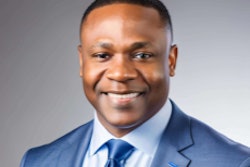As a 5-year-old got ready for her first day of kindergarten in rural Michigan, Dr. Rema Reynolds Vassar’s stepfather gave her one order. Sturgis, a town of about 10,000, had fewer than 100 Black residents, and he needed her to understand. Dr. Rema Reynolds Vassar
Dr. Rema Reynolds Vassar
“Don’t let anyone call you nigger,” he said. “If they do, you fight back.”
She thought kindergarten that morning was “the best,” as she stroked the teacher’s hair and listened to her read aloud, as happened every night at home. Then little Rema, one of just two Black children in the school, went to recess.
It happened on the merry-go-round. She had trouble with spinning, but this time she thought she could, so she did. She was sick immediately and began shouting to the boy spinning the equipment to be let off.
“Let the nigger off,” a boy across from her called out, laughing. And, somehow, she launched her little body across the merry-go-round, sending him flying through the air into the dirt.
In the principal’s office, her mother listened to all the words the principal had to say about the little girl: barbaric, brutal, and other “b” words. Then, the principal repeated the boy’s word out loud and said it was only a word. She suspended Rema on her first day.
Rema’s mother waited, and when the principal was done, asked, “What will happen to the boy?” Told he’d be back to school the next day, Rema’s mother was cool, calm and to the point: “And so will she.”
“My mother recognized the violence I experienced that day,” recalls Vassar. “Seeing her protect me and advocate for me, matter-of-factly and resolutely, changed my whole life. She stood up to the principal and affirmed my humanity. She let me know, ‘You are a full human being, and they’re going to have to recognize you.’”
That memory shows up in Vassar’s demeanor today as an advocate for racial justice.
It has shown up in her leadership while she was chair of the Michigan State University Board of Trustees, and it shows up throughout her scholarship and teaching at Wayne State University, where she is one of only two Black women in her department to be elevated to full professor.














